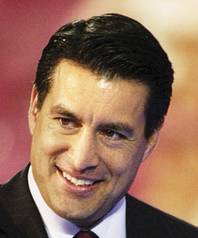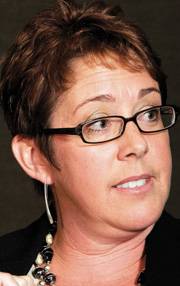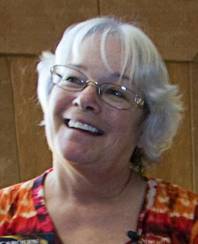Friday, Feb. 25, 2011 | 2 a.m.

Brian Sandoval

Lynn Warne

Carolyn Edwards
Sun archives
- UNLV president’s somber warning on budget cuts moves faculty to tears (2-16-2011)
- Regent says it’s time that K-12 shares in budget sacrifice (2-8-2011)
- Higher education officials say Sandoval budget cuts a ‘death sentence’ (2-4-2011)
- Education in forefront of upcoming budget battle (1-30-2011)
- Chancellor: University tuition would have to go up 73 percent to cover Sandoval budget gap (1-27-2011)
- School officials warn of jobs cuts, larger classes under proposed budget (1-26-2011)
- A steep climb for Nevadans (1-26-2011)
- Soft words during State of the State hide Nevada in pain (1-25-2011)
- Teachers not pleased with most of Sandoval’s speech (1-25-2011)
- In response, Democrats say taxes might be part of budget solution (1-24-2011)
Democratic lawmakers made their opening proposals to reform Nevada schools Thursday, giving a taste of the carrots they’ll be dangling in front of the Republicans they hope will join them in voting for a tax increase this session.
But first came their argument why Gov. Brian Sandoval’s proposed budget and its cuts to K-12 education won’t work.
The governor’s budget, which balances spending and tax revenue through cuts only, is flawed because it uses school construction money to cover operating costs — $325 million that school officials say is unavailable. Removing that money from Sandoval’s plan creates the need for an additional 7.5 percent cut to schools, Senate Majority Leader Steven Horsford said.
Sandoval’s chief of staff, Heidi Gansert, did not disagree with Horsford.
She and Budget Director Andrew Clinger said the school districts represented their fiscal situation differently before Sandoval released his budget. Gansert said the administration would reconcile budget numbers.
The additional budget hole will make it more difficult for Sandoval and the Republican lawmakers who have uniformly backed him stand firm on their pledge not to raise taxes.
Democrats will also tempt Republicans to break the no-new tax pledge with offers of support for conservative moves on public employee labor rules and the education system.
Indeed, Democratic senators and assemblymen proposed Thursday education reforms they would agree to in exchange for Republican support to avoid the cuts to schools. Included were ideas that traditionally have been championed by conservatives:
• Extend the time required for a teacher to earn tenure from one year to three years.
• Create a new evaluation system for teachers and principals that includes test scores.
• Require teachers and administrators who receive two bad reviews in a row to lose tenure and be placed on probationary status, regardless of how long they’ve been on the job.
Many of the proposals emerged from the work of Nevada Promise, a group formed to pursue federal Race to the Top grants and headed by Elaine Wynn and Nevada System of Higher Education Chancellor Dan Klaich.
Lynn Warne, president of the Nevada State Education Association, said the teachers union would need to review the details of the Democrats’ proposals but “in general, we support these reforms.”
Conservatives also praised some of these measures.
“It’s a huge step in the right direction,” said Ray Bacon, executive director of the Nevada Manufacturers Association. Bacon is a conservative and a member, like Warne, of the statewide task force on education.
“These are the areas where there is fundamental agreement,” he said. “I think Democrats were saying, ‘let’s get this out of the way so we can get to the tough stuff.’ ”
The “tough stuff” will likely be part of the endgame negotiations of the 2011 Legislature, in which Democrats seek to raise taxes and conservative Republicans seek changes to the public employee collective bargaining system, pensions, benefits and education.
Sandoval has called for education reforms, including ending teacher tenure and a long-term plan to use school vouchers. But he has taken a more cautious approach on collective bargaining for local employees, which includes teachers.
In his budget, the governor shifts $425 million from school debt service funds to pay operating costs. About $300 million of that would come from Clark County.
Clark County School Board President Carolyn Edwards said the state could take money from its debt service fund. But it would mean the district would have to restructure its bonds — increasing long-term costs — or raise property tax rates to pay off its debt.
The School District estimates the increase in property tax would be 20 cents per $100 of assessed value, a 38 percent increase from its current rate.
To bolster its case for taking the money, Sandoval’s staff released an accounting of how the district has been spending funds raised through a 1998 ballot initiative on school construction.
Spending in the 2010 capital funds budget was $275 million, almost half of what it was the year before when district was still building schools to keep up with a growing population.
But in 2011, the district’s budget approved spending $422 million. Most of that is for building improvements, including computer and Internet network upgrades. But it includes $74 million in land acquisitions; $41 million for a new northwest Las Vegas bus site; and $15 million for new furniture and equipment.
Warne, in testimony Thursday, said Sandoval’s proposed cuts to K-12 “show contempt” toward public school employees.
She said the average teacher’s salary is $52,000 a year. Sandoval’s proposed 5 percent cut to salaries plus an increased employee contribution to retirement would cost the average teacher about $6,000 a year.

Join the Discussion:
Check this out for a full explanation of our conversion to the LiveFyre commenting system and instructions on how to sign up for an account.
Full comments policy